

We may earn revenue from the products available on this page and participate in affiliate programs. Learn More ›
While some insects, like aphids and grasshoppers, can wreak havoc on your yard, others can be a big help in the garden. Many insects help eliminate harmful garden bugs by eating them in droves. For instance, one syrphid can feed on dozens of aphids per day. This means that inviting the right insects to your garden can reduce or eliminate the need for pesticides.
Pollinators like bees, butterflies, and aphid-eating syrphids can also help your garden grow and promote the surrounding ecosystem by pollinating flowers. Plus, lots of insects decompose organic matter, such as dead leaves and animal carcasses, which can add nutrients to the soil and further promote plant growth.
There are several ways to attract beneficial insects to your garden, which vary based on the insect you’re looking to draw in. For instance, installing a pond can help attract water-loving bugs, like dragonflies and damselflies, while planting lots of flowers will invite pollinators like bees to your yard. This list highlights 17 beneficial insects, along with tips on how to attract each one to your garden.
1. Praying Mantises
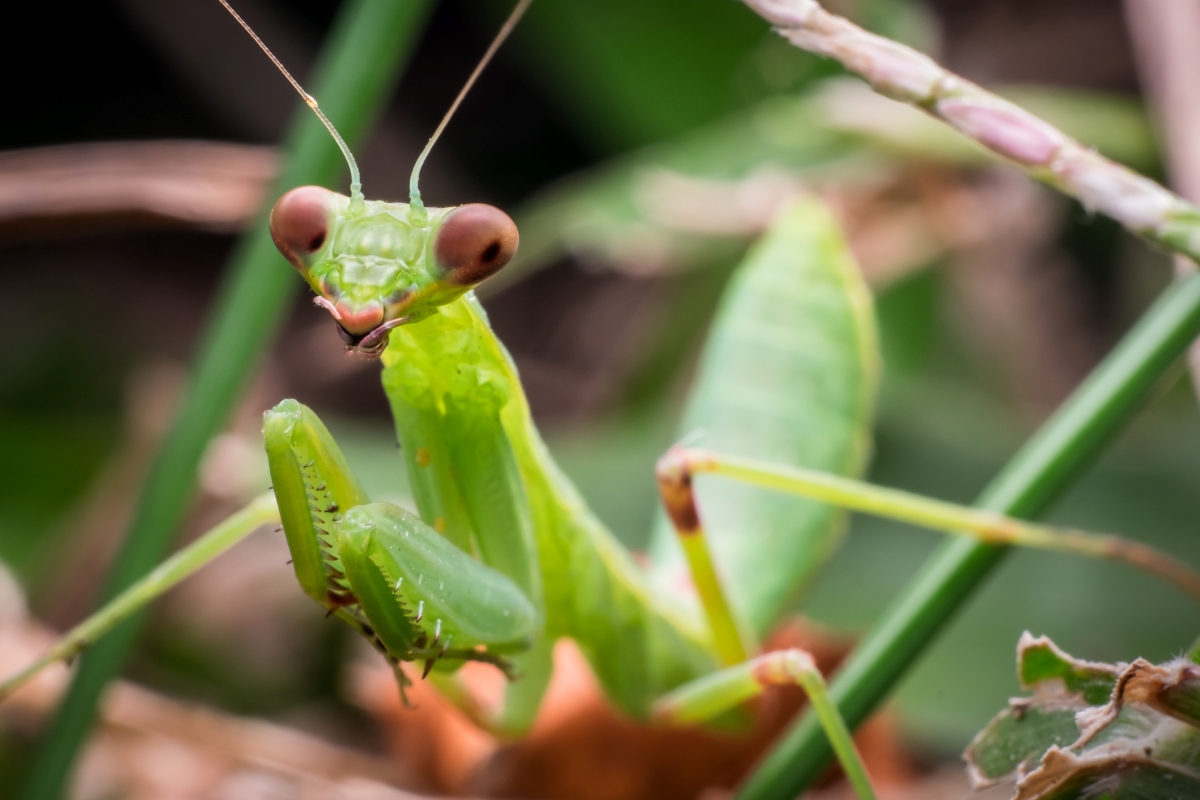
Praying mantises devour dozens of difficult plant-eating pests. DIY picklers may run across them most often, because they have a particular penchant for the scent of dill. So plant some dill to turn your garden into a hot property for praying mantises.
2. Ladybugs
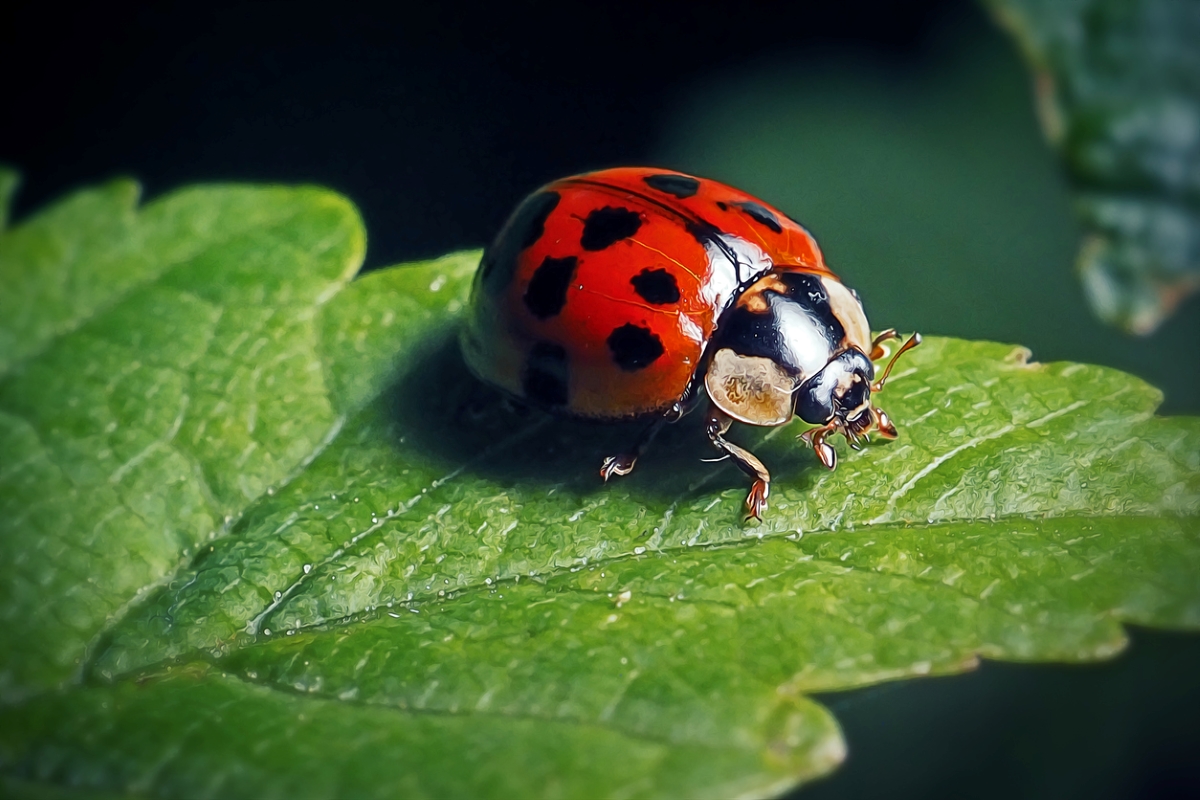
Ladybugs (or lady beetles) love to snack on aphids, along with many other insects that can potentially harm your plants. Get on a ladybug’s good side by adding some cilantro, dill, or fennel to your garden mix.
RELATED: 15 DIY Solutions for a Pest-Free Home
3. Butterflies
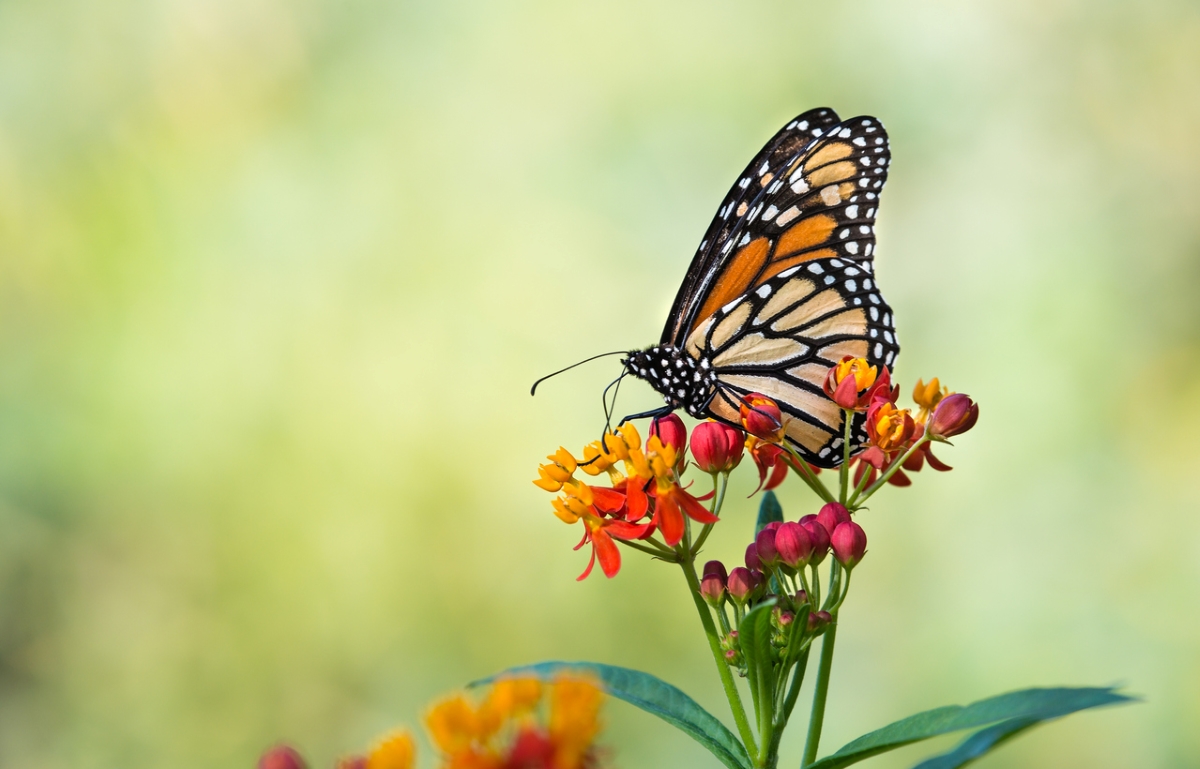
The mere presence of butterflies adds a heavenly vibe to any garden, but these graceful insects also help beautify plants by pollinating them. One of the best ways to attract a few of these magnificent creatures is by planting liatris, spiky flowers that some butterflies find very appealing.
4. Green Lacewings
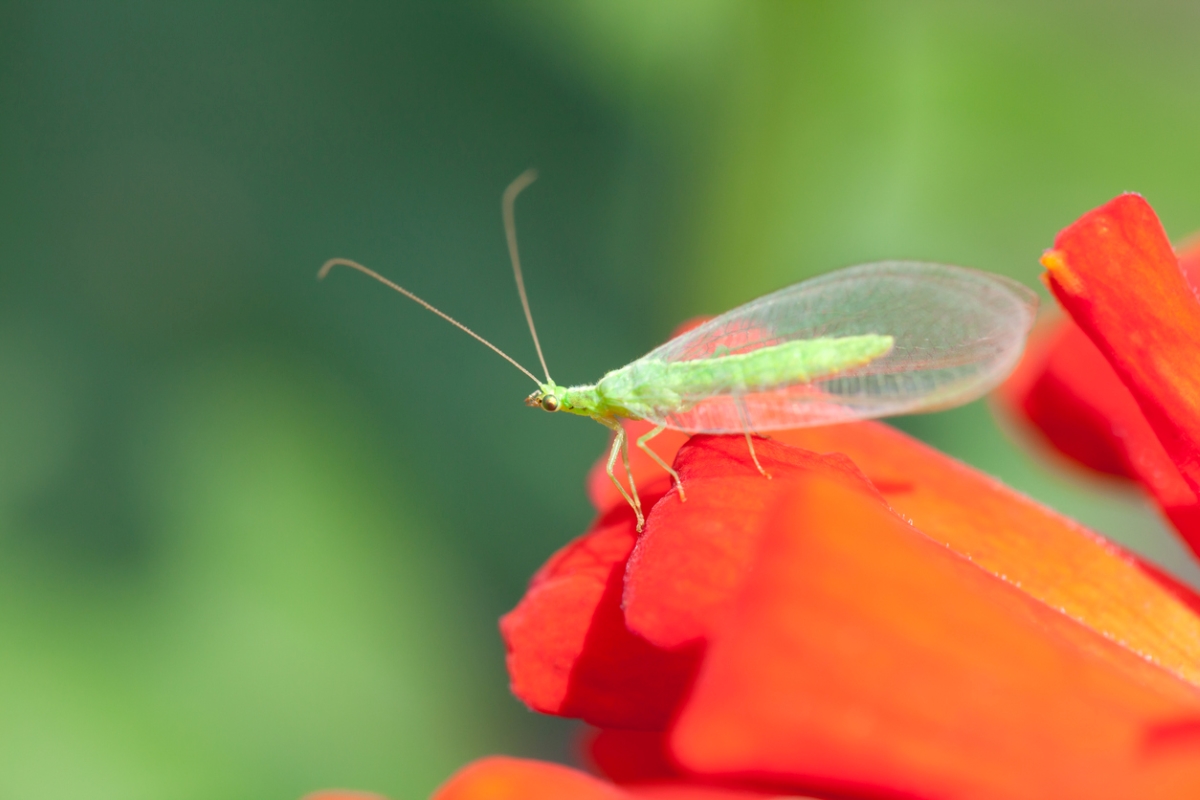
The larvae of the green lacewing are nicknamed “aphid lions” because of their fearsome appetite for aphids. You can attract adult green lacewings—and ultimately their larvae—with marigolds, which have a nectar they find delectable.
RELATED: How to Get Rid of Aphids
5. Minute Pirate Bugs
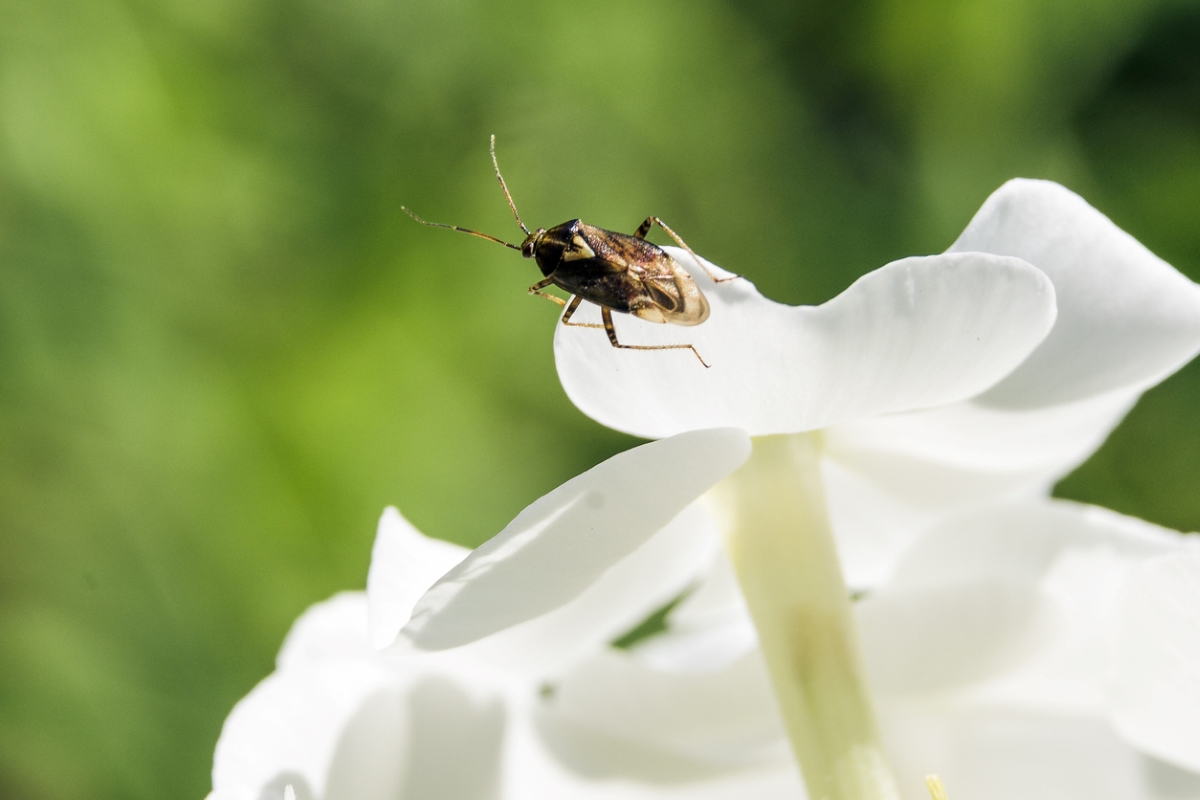
Some predatory insects only take out bad bugs up to the point of satiety, but minute pirate bugs continue to kill even when they’re full. Growing alfalfa is an excellent way to recruit minute pirate bugs to guard your plants.
RELATED: 20 Tips for Keeping All Critters Out of Your Yard and Garden
6. Dragonflies
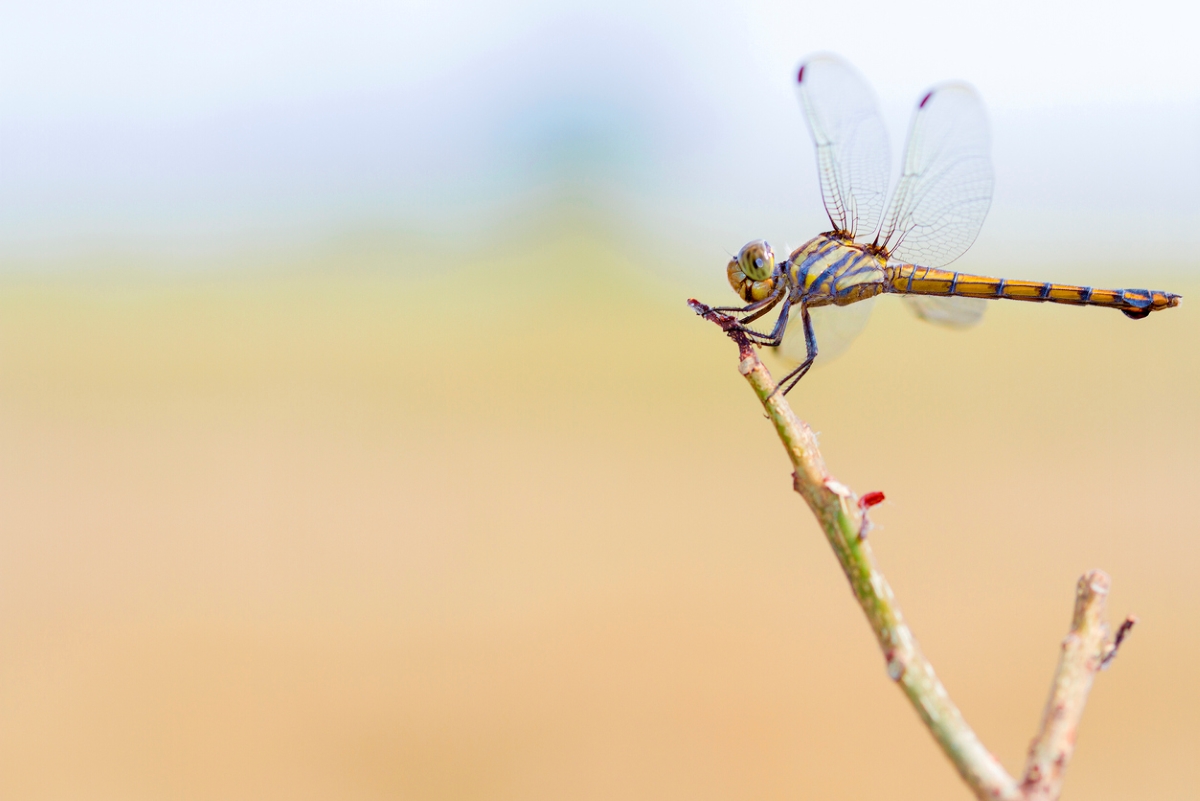
No insect detrimental to your garden will be safe from the mighty dragonfly, with its very broad taste in insects. Adding a pond with plant vegetation to your garden is the best way to get them to swoop down. Don’t worry about mosquitoes setting up shop. Dragonflies devour them too.
RELATED: How to Make Homemade Mosquito Repellent: 6 Easy, Effective Recipes
7. Moths
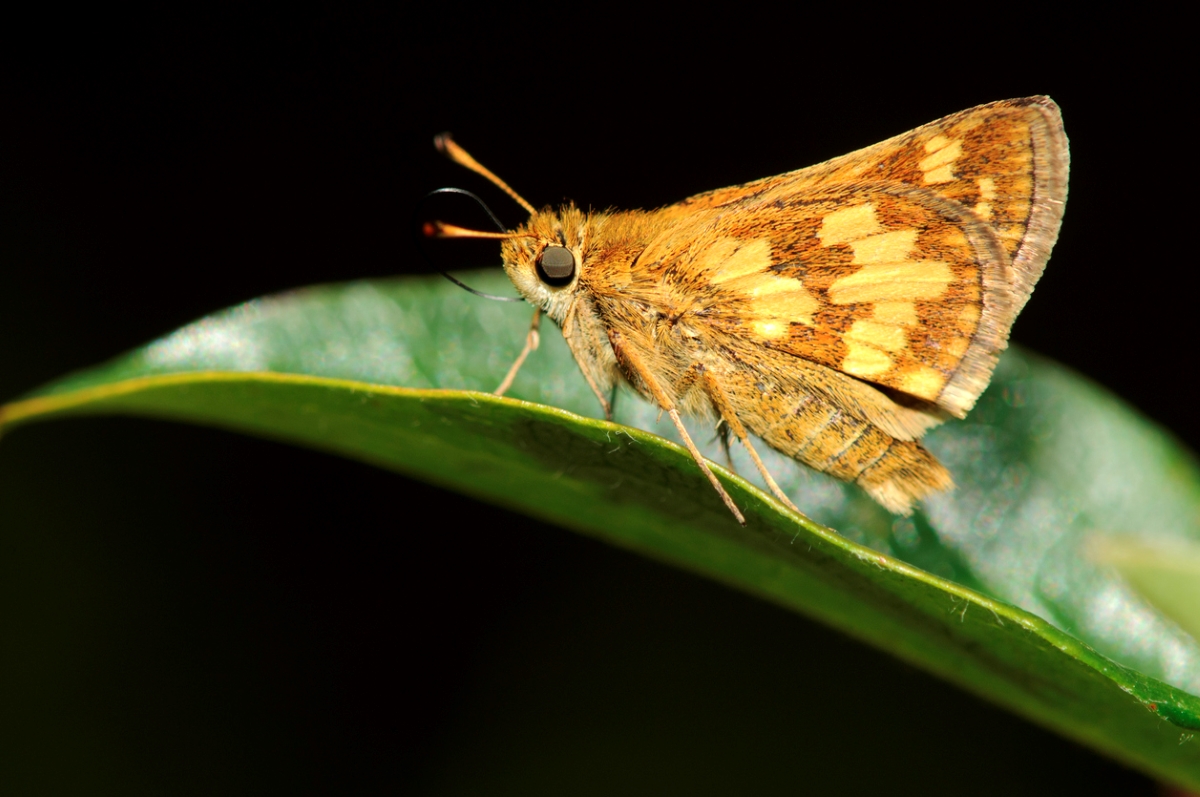
Moths are yet more winged creatures that play a big role in pollinating plants. They also serve as food for other beneficial bugs. Plant some nettle plants to attract them, and before long they’ll join the good-guy army of butterflies, hoverflies, and dragonflies in your garden.
8. Bees
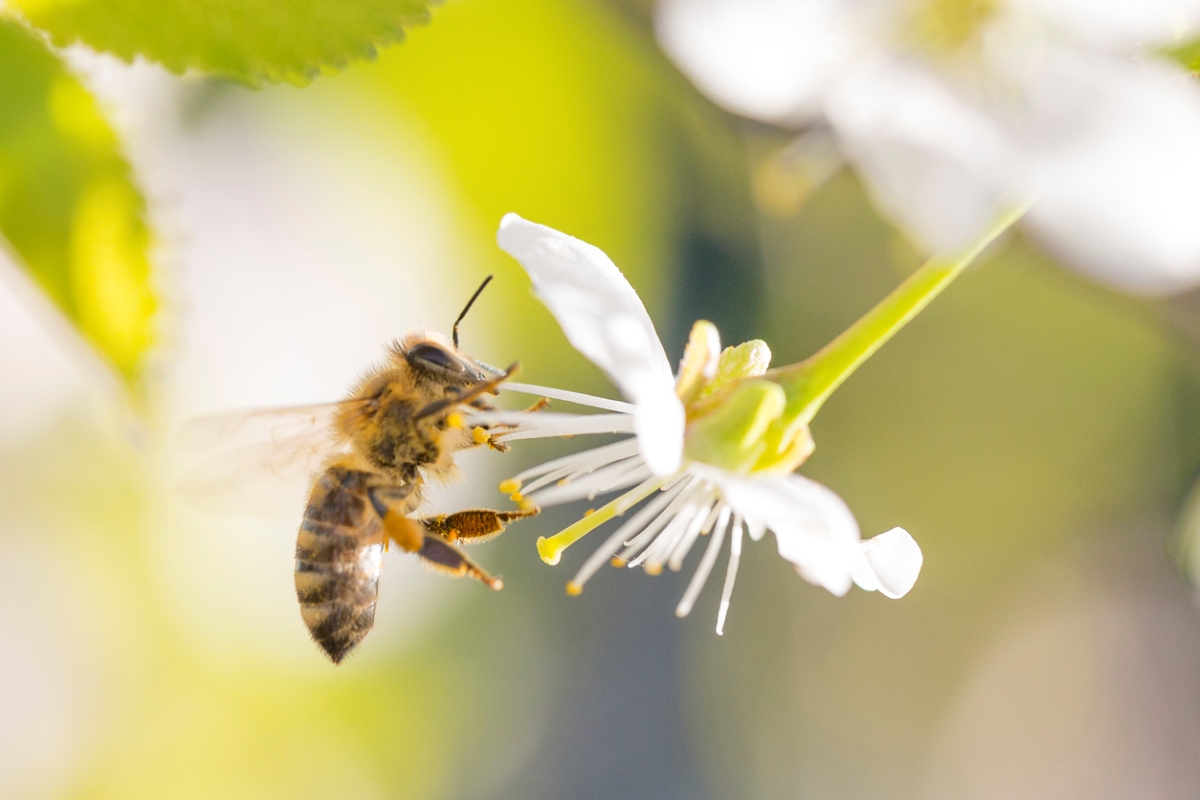
Bees aren’t just a good thing for the garden, they’re crucial for the environment. While they’ve earned a bad rap amongst humans who are afraid of being stung, the truth is they’re too preoccupied pollinating flowers to care about stinging anybody. Lavender, chives, and coneflowers are just a few types of plants that will attract the buzzers.
RELATED: 20 Flowers That Attract Bees to Your Garden
9. Aphid Midges
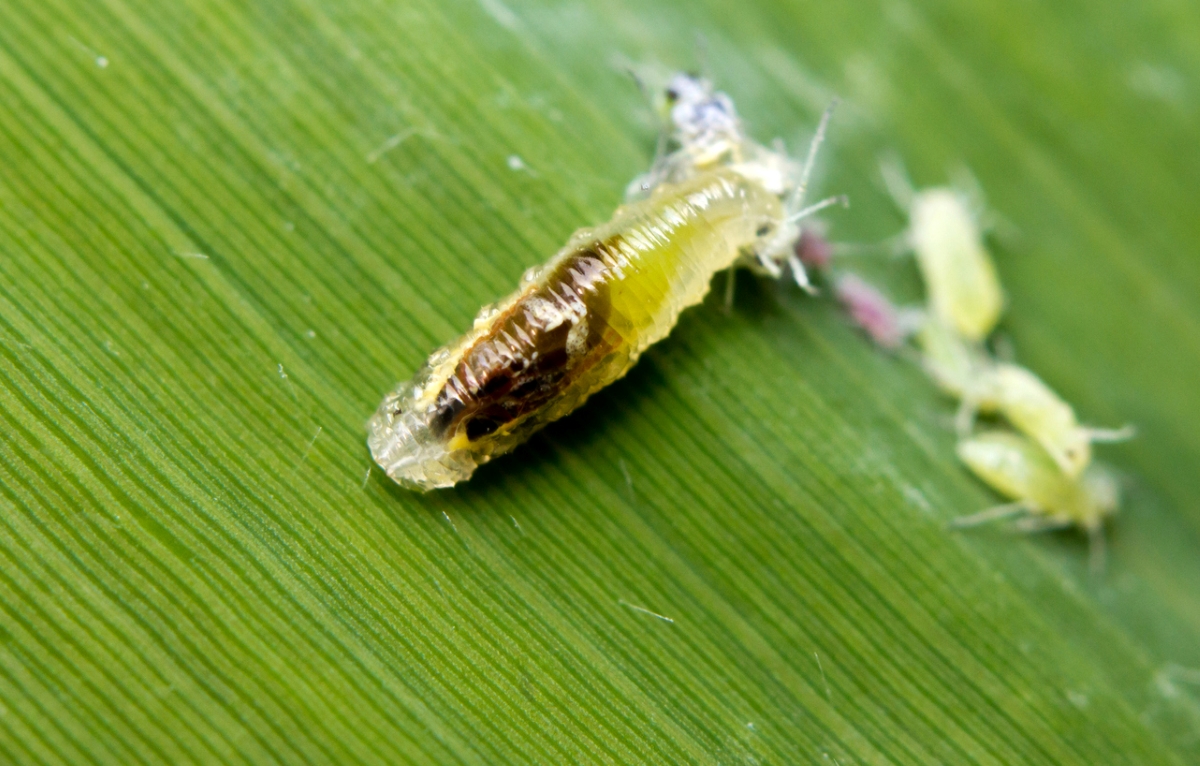
Larvae from female alpha midges poison aphids and feed on them for days. If the midges don’t appear on their own when you face an aphid infestation you can purchase them to get rid of the pests.
10. Ground Beetles
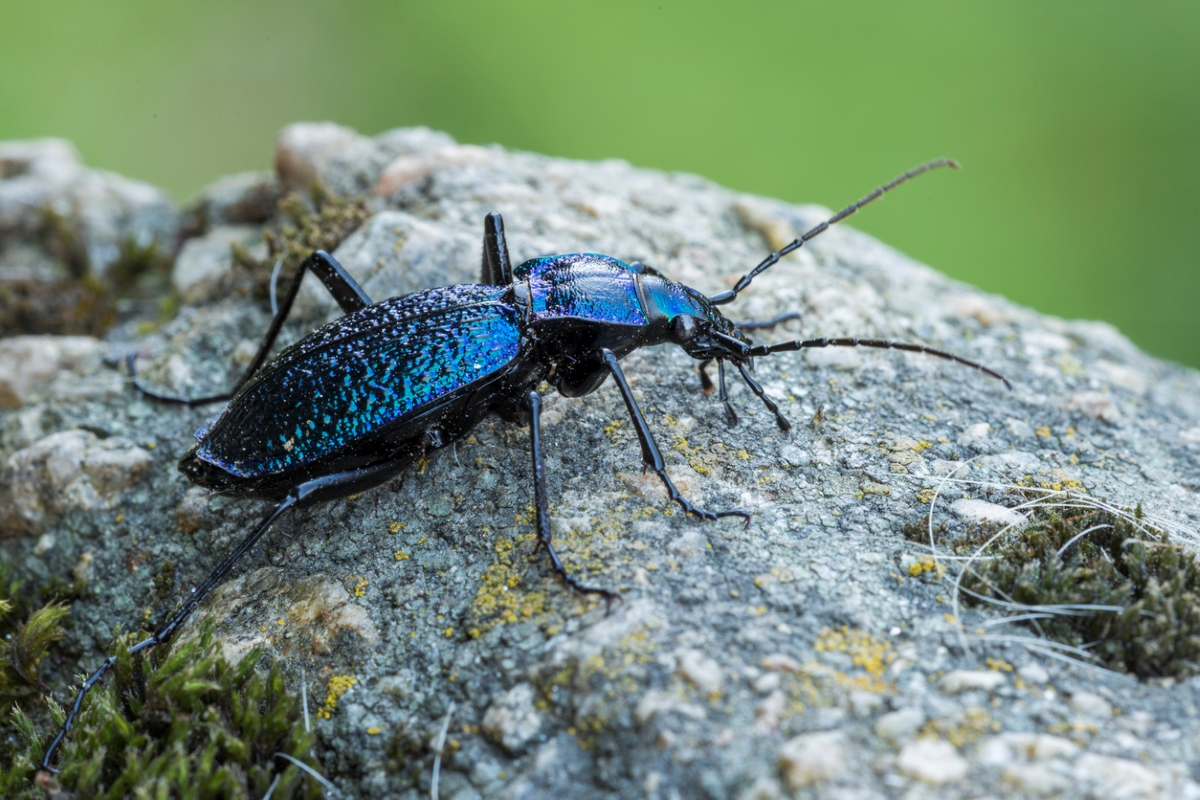
Spotting a ground beetle in the garden is a happy discovery! The nocturnal critter eats ants, aphids, caterpillars, maggots, and slugs—plus a few species even eat the seeds of invasive weeds. The next time you discover a beetle just let it be.
RELATED: 8 Reasons Not to Use Pesticides in Your Yard and Garden
11. Predatory Wasps
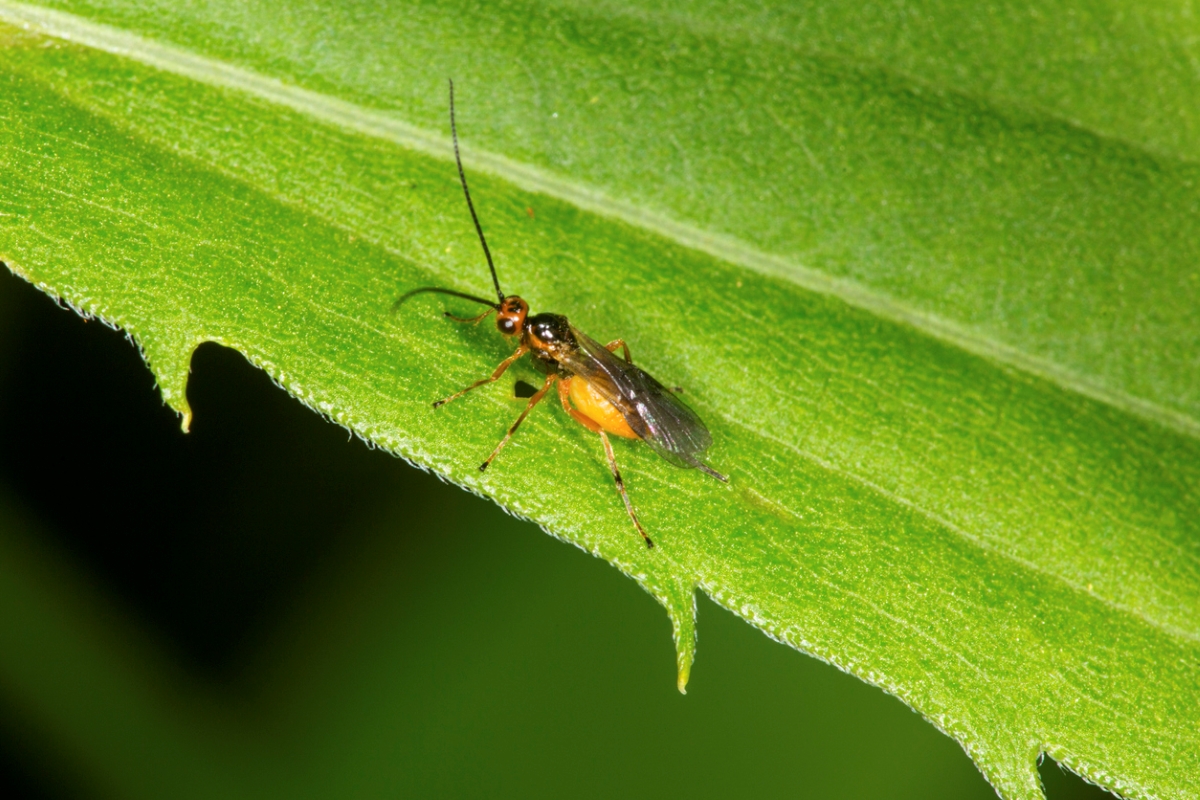
You may not want to encounter a wasp and its stinger, but predatory wasps in the garden are actually a good thing. These feisty stingers not only pollinate flowers, but they attack the crawlers that infest your garden. Braconid and paper wasps are useful for controlling caterpillars and flies, while tiphiid and scoliid wasps prey on Japanese beetles and June bugs.
RELATED: 9 Ways to Rid Your Garden of Japanese Beetles
12. Assassin Bugs
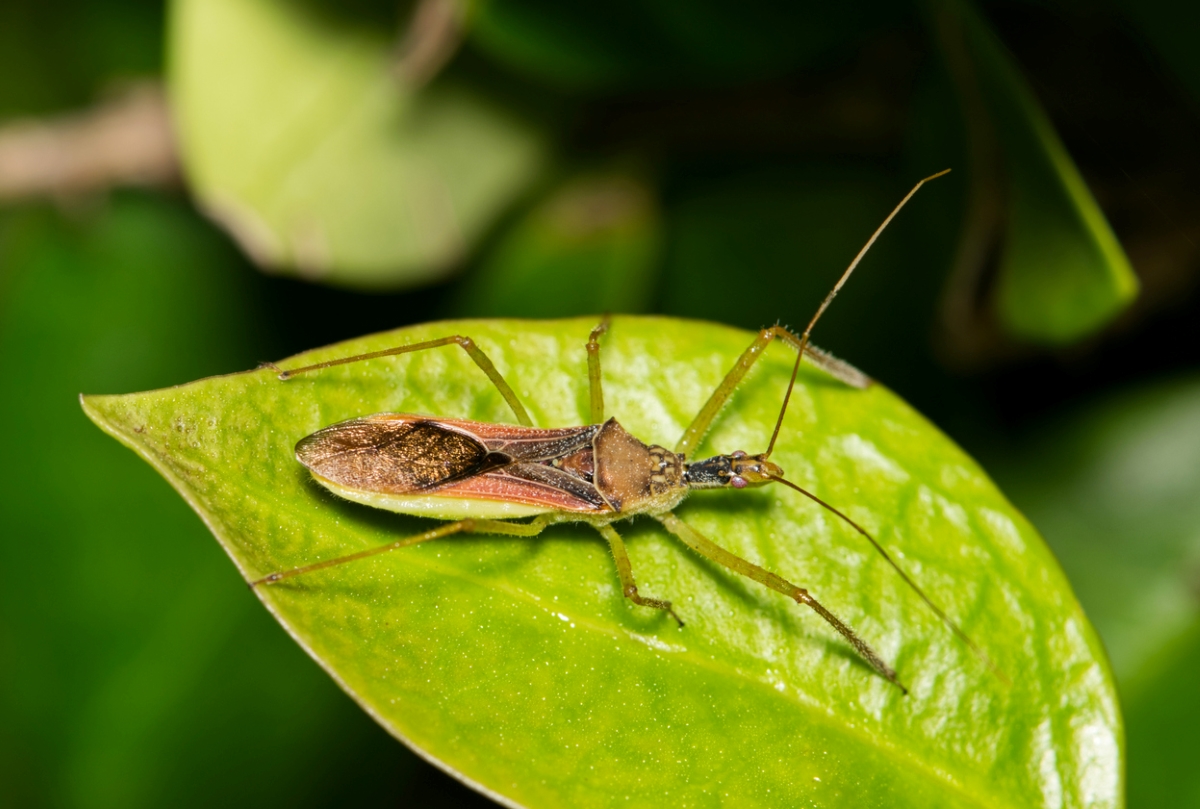
From the Reduviidae family, there are around 160 species of assassin bugs in North America and more than 7,000 worldwide. These bugs use a curved rostrum (piercing mouthpart) to inject venom into their prey, which include destructive pests like aphids, leafhoppers, squash bugs, and tomato hornworms. These bugs love flowers, like daisies and marigolds, so a yard full of pretty blooms can encourage them to stick around.
13. Spiders
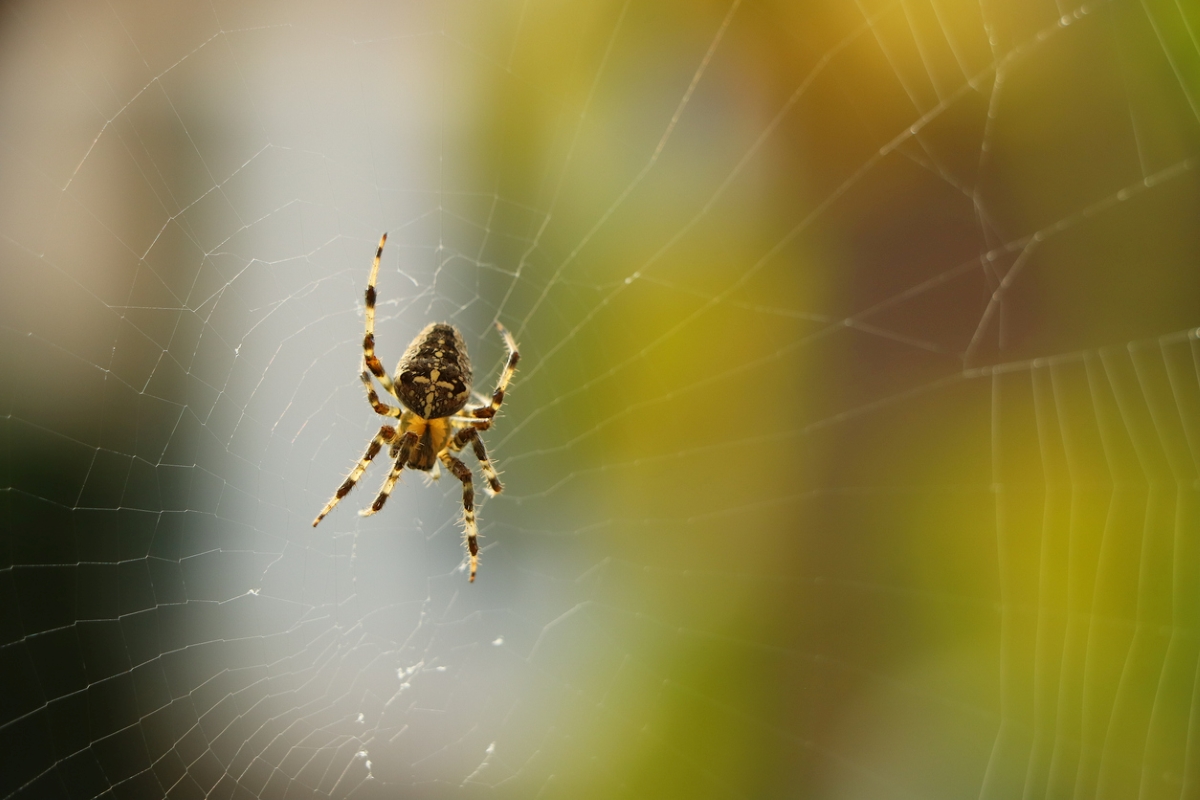
Spiders love to munch on common garden pests, including beetles, flies, wasps, and spider mites. They also have a taste for mosquitoes and roaches, so if you see them taking up residence in your yard, thank them for keeping so many annoying insects at bay. Adding mulch around your plants can invite more spiders to your yard since it provides cool dark places for them to hide and catch prey.
RELATED: What Attracts Spiders? How You’re Inviting Spiders Into Your Home—And What To Do About It
14. Robber Flies
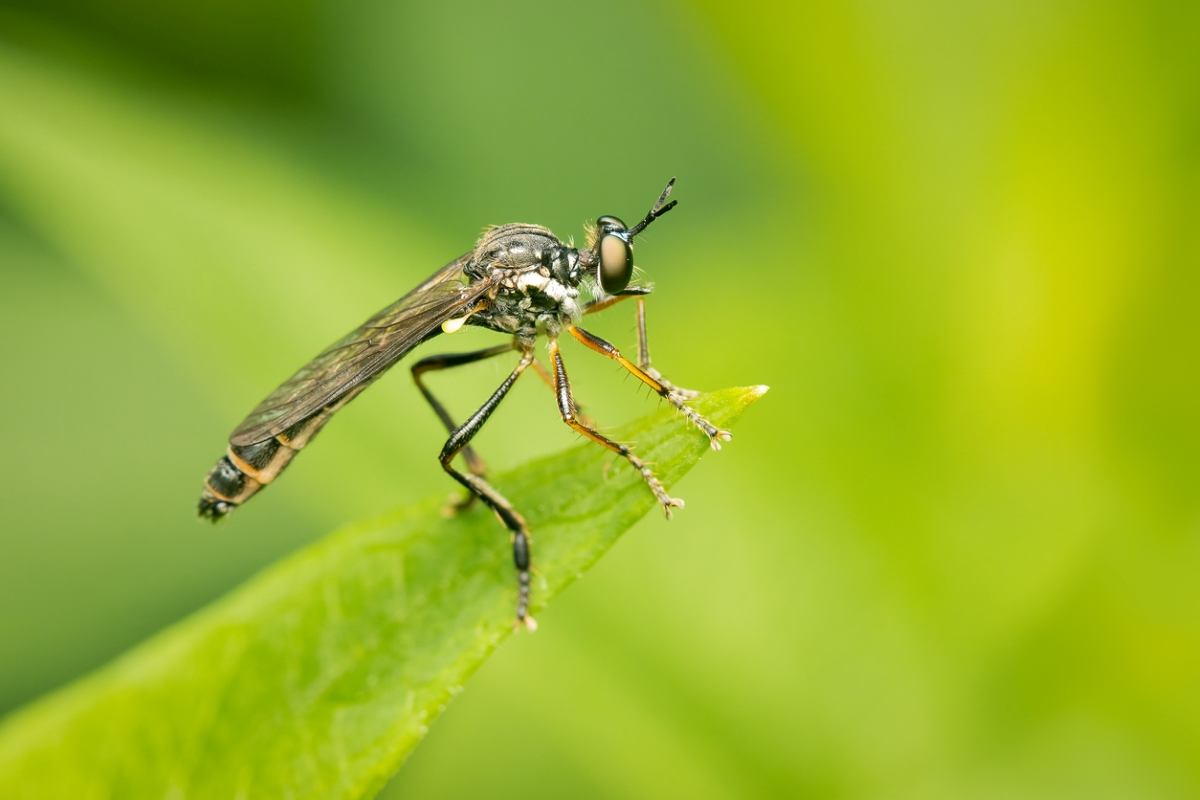
From the Asilidae family, robber flies are typically gray or black, with hairy bodies and long, tapering abdomens. Some robber flies look like wasps or bees, but their appearance can vary quite a bit by species. These insects feed on beetles, flies, grasshoppers, wasps, and many other arthropods that you might not want in your yard. Since robber flies prey on such a large variety of insects, planting diverse plants that attract a wide range of arthropods is likely to draw more to your yard.
15. Syrphids
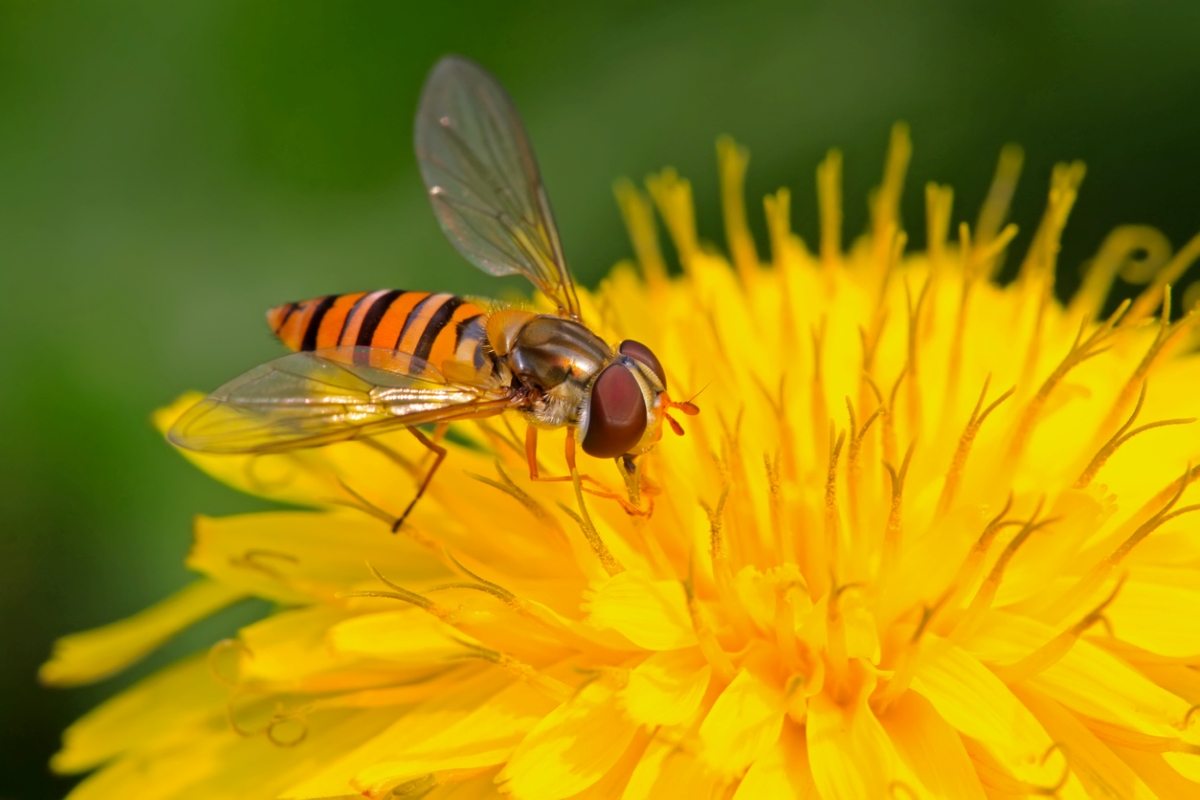
Syrphids, also called flower flies or hoverflies, are from the Syrphidae family and, like robber flies, they resemble wasps and bees, which offers them some protection against predators. If you’re concerned about aphids damaging your plants, be happy when you spot syrphids in your yard—they can feed on dozens of aphids per day. They’re also very important pollinators, making critical contributions to the ecosystem. Entice syrphids to your property by planting flat flowers like daisies, zinnias, and cosmos, that offer easy access to nectar.
RELATED: 12 Plants With Year-Round Pollinator Appeal
16. Damselflies
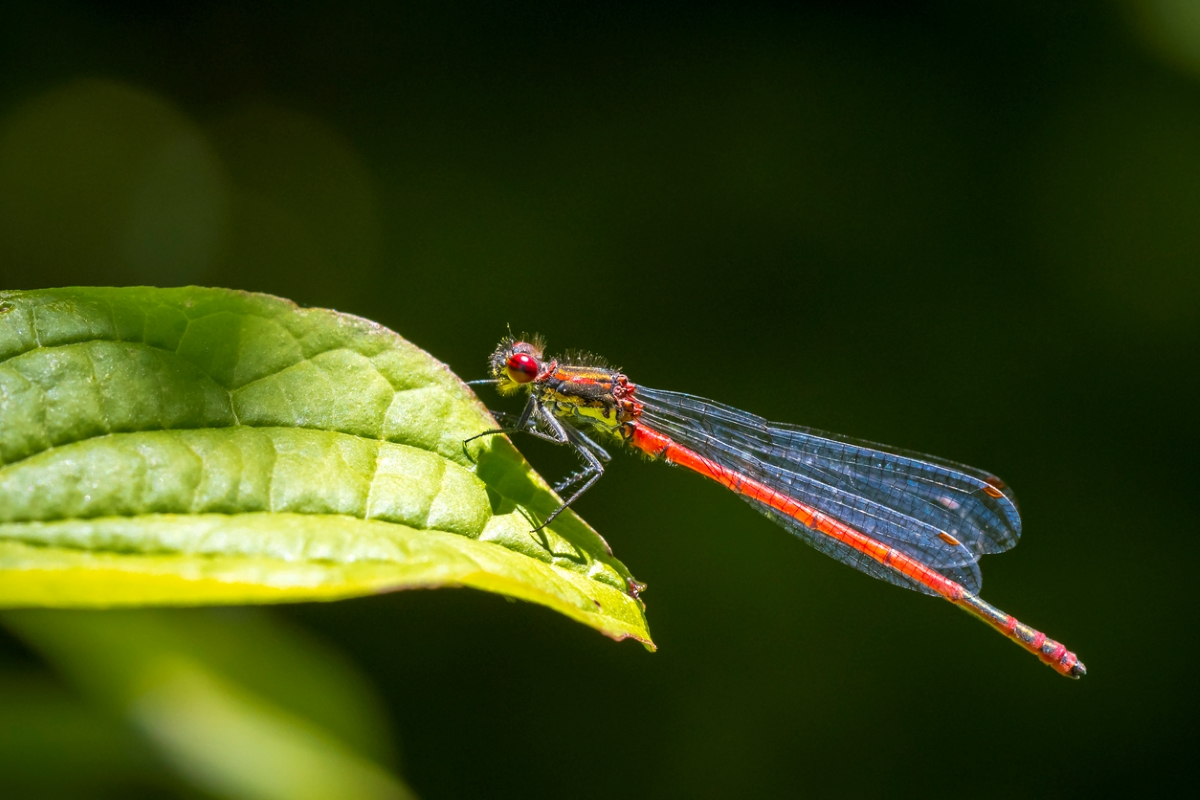
Damselflies feed on the kinds of insects that most of us don’t want around (mosquitoes and flies, we’re looking at you). These beneficial garden critters look somewhat like dragonflies, with long slender bodies and basket-shaped legs, but they’re quite a bit smaller, usually around 1.5 to 2 inches, while dragonflies are usually longer than 2 inches. Damselflies typically hang out close to fresh water, where they focus on catching mostly flying insects. Installing a small pond with vegetation can invite these helpful bugs to your yard.
17. Centipedes
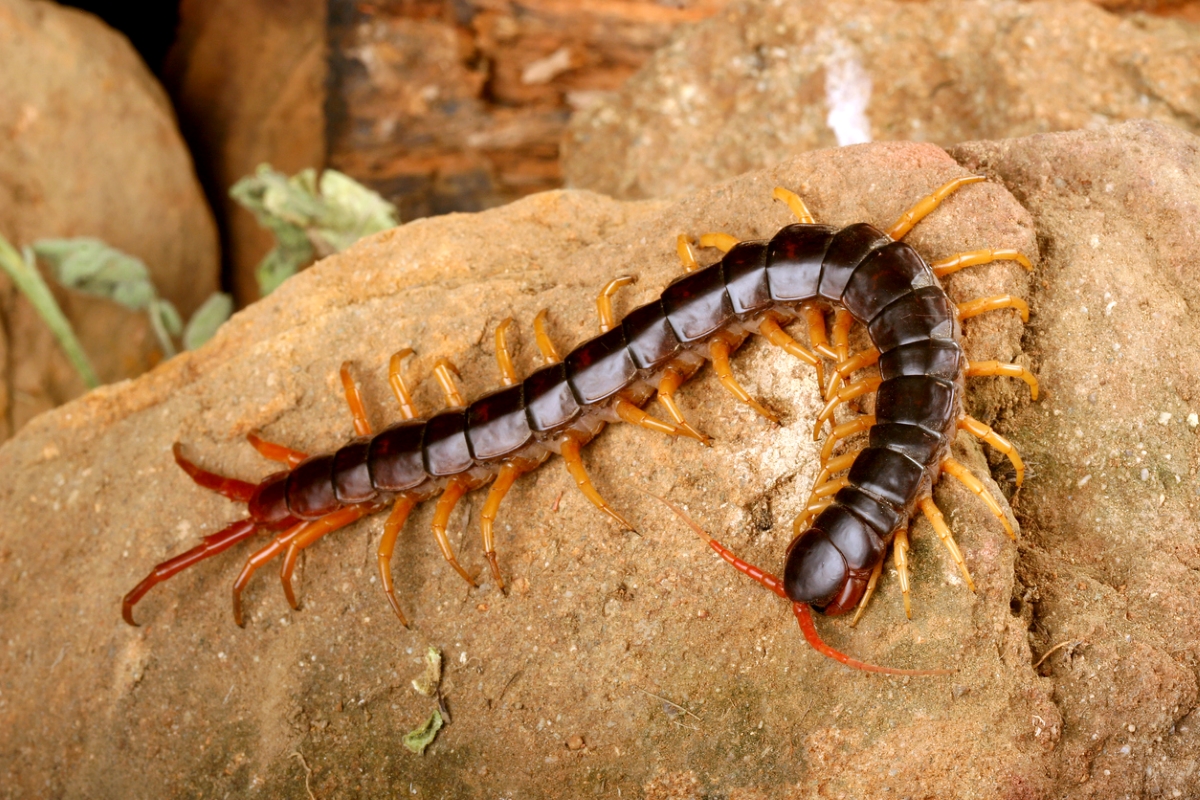
Centipedes feature long bodies with anywhere from 15 to 177 pairs of legs depending on the species, of which there are around 8,000. Centipedes eat all sorts of annoying insects, like mosquitos, cockroaches, grasshoppers, and beetles. Since centipedes love to hang out in moist, dark places, adding mulch to your yard can encourage more of them to move in.
